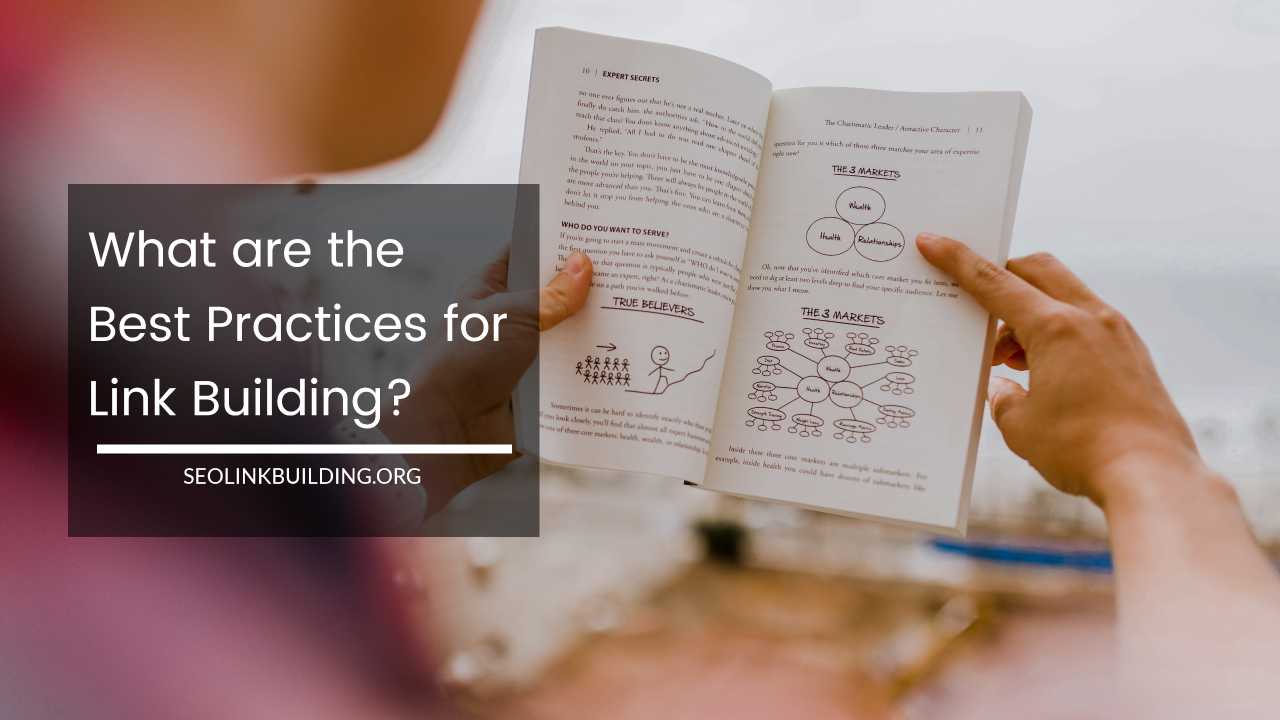What are the Best Practices for Link Building?

Link Building
In the vast and competitive landscape of search engine optimization (SEO), link building stands as one of the most crucial strategies for boosting website rankings.
In this article, we will delve into the art of link building, exploring its significance and various best practices to excel in this domain.
Understanding Link Building
What is Link Building?
Link building is the process of acquiring hyperlinks from external websites that lead back to your own site.
These inbound links, also known as backlinks, act as pathways for users and search engine crawlers to navigate across the internet, discovering relevant content along the way.
Why is Link Building important for SEO?
Link building plays a pivotal role in SEO for several reasons. First and foremost, search engines like Google consider backlinks as votes of confidence.
Websites with a higher number of quality backlinks are perceived as more authoritative and trustworthy, resulting in higher search engine rankings.
Additionally, link building enhances the discoverability of your content, increasing organic traffic to your website.
Types of Links
Before diving into the best practices for link building, it’s essential to understand the various types of links:
- Natural Links: Earned organically when other websites find your content valuable and link to it without any influence from you.
- Manual Links: Acquired through intentional outreach and relationship building with other website owners.
- Self-Created Links: Placed on forums, blog comments, or user profiles by the website owner, which should be used sparingly and with caution.
- Editorial Links: Links that are naturally inserted by website editors within the content.
Best Practices for Link Building
1. Create High-Quality Content: Content is the foundation of link building success. Craft compelling, informative, and shareable content that naturally attracts backlinks from other websites.
2. Guest Blogging: Reach out to authoritative websites in your niche and offer to write guest posts. Guest blogging not only provides valuable exposure but also allows you to include relevant backlinks to your website.
3. Broken Link Building: Identify broken links on other websites and propose your content as a replacement. This method offers a win-win situation, providing the website owner with a fix for their broken link and you with a new backlink.
4. Social Media Engagement: Share your content on social media platforms to increase its visibility and encourage other users to link to it.
5. Influencer Outreach: Collaborate with influencers in your industry to gain exposure and backlinks from their networks.
6. Building Relationships in Your Niche: Connect with other website owners and bloggers in your niche to foster mutually beneficial relationships that may lead to link opportunities.
7. Utilizing Business Directories: Submit your website to relevant business directories, as they often provide valuable backlinks.
8. Local Citations: For local businesses, ensuring consistent NAP (Name, Address, Phone number) across various local directories can enhance local search rankings.
9. Resource Link Building: Create comprehensive resource guides that other websites would want to link to as a valuable source of information.
10. Infographics and Visual Content: Visual content, such as infographics, tends to attract more backlinks and shares.
11. Earning Backlinks through PR: Leverage public relations efforts to earn mentions and backlinks from reputable news sources and industry publications.
12. Monitoring and Removing Bad Links: Regularly monitor your backlink profile and disavow or remove spammy and irrelevant links.
13. Avoiding Link Schemes: Steer clear of black hat link building tactics, as they can lead to penalties from search engines.
White Hat vs. Black Hat Link Building
It’s essential to differentiate between white hat and black hat link building techniques. White hat tactics adhere to search engine guidelines, focusing on genuine, organic link acquisition.
On the other hand, black hat methods involve manipulative and spammy techniques that violate search engine rules. Opting for white hat practices ensures long-term success and avoids potential penalties.
Measuring Link Building Success
The success of your link building efforts can be measured through various metrics, including increased organic traffic, higher search engine rankings, and the number of quality backlinks acquired over time.
Regularly analyze and adjust your strategies based on the data collected.
Conclusion
Link building remains a fundamental pillar of SEO, and mastering its best practices can significantly impact your website’s visibility and authority.
By creating exceptional content, engaging with others in your niche, and embracing ethical link building techniques, you can strengthen your online presence and propel your website towards long-term success.
FAQs
Is link building still relevant in modern SEO?
Yes, link building continues to be a crucial aspect of modern SEO. It helps search engines understand the relevance and authority of your content, leading to improved rankings and organic traffic.
How long does it take to see results from link building?
The timeline for seeing results from link building can vary depending on various factors, including the competitiveness of your niche and the effectiveness of your strategies. Generally, it may take a few weeks to several months to observe significant improvements.
Can I buy backlinks to expedite the process?
Buying backlinks is considered a black hat tactic and can lead to severe penalties from search engines. It’s essential to focus on earning high-quality backlinks through ethical practices.
Are there any tools to help with link building efforts?
Yes, several tools can aid in link building, such as Ahrefs, Moz, SEMrush, and BuzzStream, which can assist in finding potential link opportunities and analyzing your backlink profile.
What if I have a limited budget for link building?
While certain link building strategies may require a budget, there are still plenty of effective tactics that can be implemented with minimal expenses, such as guest blogging, content marketing, and social media engagement.













